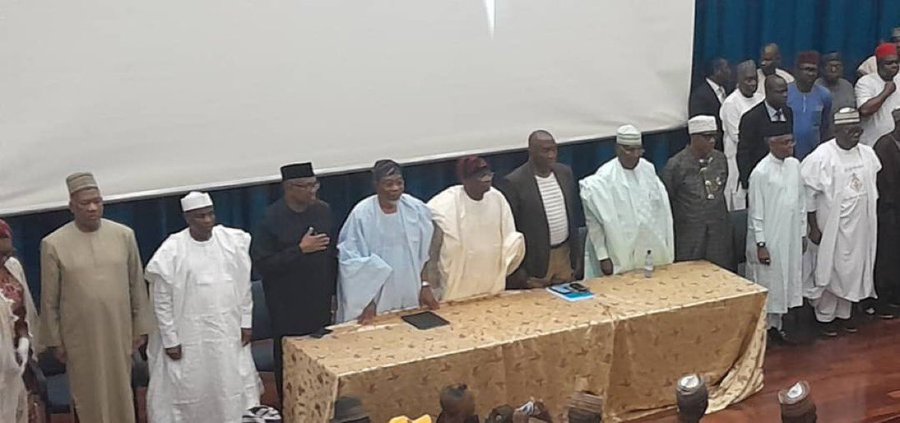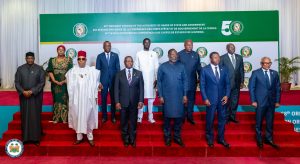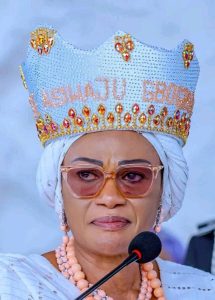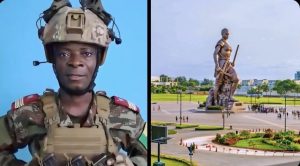Lagos, 6 July 2025 – As Nigeria approaches the 2027 presidential election, former Vice President Atiku Abubakar is emerging as a significant threat to the long-standing North-South Gentleman’s Agreement, a principle that has underpinned the nation’s political stability for decades. Critics argue that Atiku’s persistent presidential ambitions demonstrate a lack of emotional intelligence and an inability to align with the national psyche, branding him a meddlesome interloper who disregards the delicate balance of regional power-sharing.
The North-South Gentleman’s Agreement, an unwritten rule, ensures that Nigeria’s presidency rotates between the northern and southern regions every eight years to foster unity and equity. With President Bola Tinubu, a southerner, currently in office following the northern presidency of Muhammadu Buhari (2015–2023), the South is expected to retain the presidency until at least 2031. However, Atiku’s reported plans to contest the 2027 election under the opposition coalition banner are seen as a direct challenge to this arrangement.
Political analysts and commentators have accused Atiku of failing to “read the room” in Nigerian politics, a flaw they claim has defined his multiple presidential campaigns. In 2023, his refusal to support a southern candidate and his insistence on running under the Peoples Democratic Party (PDP) banner, despite Buhari’s eight-year northern tenure, split the opposition vote and contributed to Tinubu’s victory. Critics point to Atiku’s handling of the PDP’s internal dynamics, particularly his failure to push for a southern national chairman to replace Iyorchia Ayu, as a critical misstep that exacerbated tensions within the party and empowered Nyesom Wike’s faction, creating what is now known as the “Wike Problem.”
Atiku’s desperation and arrogance lead him to make rudimentary mistakes. His inability to respect the North-South agreement in 2023 cost the PDP dearly, and now he risks repeating the same error by refusing to step aside for a southern candidate like Peter Obi in 2027.
Atiku’s critics argue that his ambition blinds him to the broader national interest. Posts on X reflect growing frustration, with some users accusing him of undermining the rotational principle for personal gain. One user wrote, “Atiku forcing himself on the ballot in 2023 as a northerner after Buhari’s eight years was a loophole the APC exploited. Why can’t he see the South must hold the presidency in 2027?”
The opposition coalition, recently formed under the African Democratic Congress, ADC, with Atiku and Peter Obi as key figures, is seen as a potential vehicle to challenge Tinubu’s All Progressives Congress, APC. However, Atiku’s apparent determination to lead the ticket, rather than support Obi a southerner with significant grassroots support has sparked concerns that he is setting the coalition up for failure. Obi, the Labour Party’s 2023 presidential candidate, has a strong following among Nigeria’s youth, known as the “Obidients,” who are unlikely to back a northern candidate in 2027.
Atiku’s insistence on running again shows he hasn’t learned from past failures. Peter Obi represents a fresh, southern-led vision that aligns with the Gentleman’s Agreement. Atiku should step back and support him to unify the opposition.
Atiku’s camp has remained tight-lipped about his 2027 plans, but his history of contesting every presidential election since 1993 suggests he is unlikely to relent. In May 2025, Atiku denied rumours of a power-sharing deal with Obi, stating that coalition talks were still exploratory and focused on providing a credible alternative for Nigerians. However, his critics argue that his actions betray a singular focus on personal ambition, with little regard for the principles of fairness and rotation that have held Nigeria together.
As the 2027 election draws nearer, Atiku’s role in the opposition coalition will be closely watched. Will he respect the North-South Gentleman’s Agreement and support a southern candidate, or will his ambition once again disrupt Nigeria’s fragile political balance? For now, many Nigerians are left wondering why Atiku cannot see that the presidential flag must remain in the South for the next four years.






